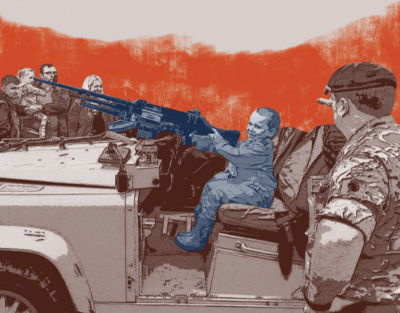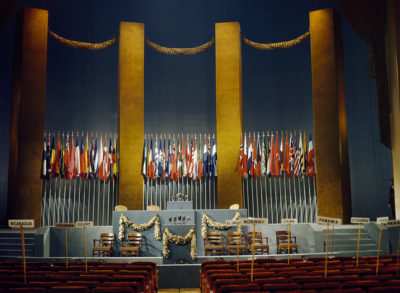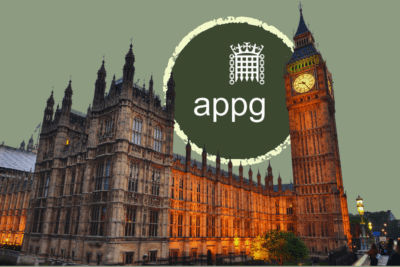A tough year but business as usual

Covid
As a vaccine is being rolled out, the UK has in effect entered a third lockdown. Over 69,000 deaths and around 2 million cases are estimated to have occurred in the UK. The crisis has been militarised in some significant practical and cultural ways. From the high-visibility use of the army for crisis response and building Nightingale Hospitals, to the rise of Captain Tom Moore, the 100 year old WW2 veteran who has become an establishment-approved cause célèbre after he raised over £30 million for the NHS. Now knighted, he has also been appointed honorary colonel of the Army Foundation College, the military training establishment for under 18 year olds. While the armed forces have used Covid response as a recruiting tool, the British Legion conflated it with remembrance.
One positive response to the pandemic was the UN Secretary-General’s dialogue around the need for a global ceasefire. The 75th Anniversary of VE Day in May also provided an opportunity for reflection on what we can learn from the ideals and hope that flourished after the Second World War for a post-Covid world:
‘It may appear that the hopes and ideals held by those who 75 years ago wanted war to be limited by law, wanted broader access to healthcare, who preferred dialogue to armed force, have been lost to history. Yet the questions they asked should be asked again today and, now as then, the answers acted upon in the interest of a better, more just and less militarised settlement.’
BLM
With Donald Trump attempting to manoeuvre the US military into a position of shoring up his own hostility towards the Black Lives Matter protests, and threatening to use it to suppress protest, the response from within the military was more complex, including resistance from the top and from the bottom. With the highly militarised policing of the US protests and the involvement of armed private militias, militarised responses have not been limited to the state’s armed forces.
The UK version of Black Lives Matter rose to prominence this year, both in solidarity with the US movement but also to highlight systemic racism within the police and other institutions in this country, and to challenge established narratives of colonial history in the UK.
We wrote a piece for Ceasefire Magazine exploring the links between everyday militarism in the UK and the movement to decolonise its institutions:
‘The Black Lives Matter movement in the UK, which parallels the ongoing struggle in the US against police brutality and inequality, has pushed racism to the top of the agenda in 2020. Yet the military appears to have largely escaped censure, and it remains to be seen, even at a time when the idea of decolonising curriculums, institutions and city centres is receiving publicity, whether a military whose identity pivots proudly around its expeditionary past and present, can move beyond optics and towards a process of decolonising itself.’
Recruitment
By May 2020 it became clear that the UK military was seeing the crisis as something to be used in recruiting messaging and improving its reputation. Our own Joe Glenton and Declassified UK’s Matt Kennard published an investigation into how, in the MOD’s view, the pandemic presented an opportunity. By July, it was being reported that the army had hit 96% of its recruiting targets.
Brexit and ‘Global Britain’
In the midst of the crisis it was sometimes possible to forget that Britain is leaving the EU. Negotiations are still underway with various implications for security. These include concerns over the Northern Irish peace settlement which is embodied in the Good Friday Agreement (which now has a powerful supporter in Irish-American US President-elect Joe Biden) as well as a strong sense that Scotland will vote to leave the union in any re-run of the 2016 independence referendum. The latter could impact on, among other things, the UK’s nuclear fleet at Faslane.
The government’s ‘Global Britain’ vision of post-Brexit foreign policy remains a rather nebulous formulation. Nevertheless, both main parties subscribe to it fully. Under new leadership, Labour has argued over the details, but never the premise. The long awaited defence and security review was postponed, while a massive pre-emptive hike in defence spending was announced. It was viewed by many as dangerously short term thinking in terms of human security policy, particularly coupled with the cut in the international aid budget and ‘the real elephant in the room’ of climate breakdown. As the pandemic and the impact of climate change rages, alternative visions of security, however, such as a New Green Deal have been advanced.
War and militarism
The UK has continued to supply military and policing equipment and training to repressive regimes, including Saudi Arabia, Nigeria and Hong Kong. Our friends at Campaign against Arms Trade (CAAT) are pursuing a new legal challenge against the UK government over its renewal of arms sales to Saudi after a court case in 2019 found such sales unlawful. They have also brought attention to the supply of ‘crowd control’ equipment by the UK which has been used to suppress BLM protests.
On a positive note, and arguably a highlight in anti-militarism in 2020, Lance Corporal Ahmed al-Batati was discharged from the army without further disciplinary action. The Royal Signals soldier had protested in Whitehall in uniform over UK support for the bombing of Yemen in August. He was removed by military police but has now been allowed to leave the military.
He told Declassified UK:
‘I felt a duty to speak out for those that couldn’t speak, and for those that didn’t have any sort of power in Yemen – even the civilians within Britain, the British Yemenis, feel like they are not heard by their local MPs [It] got me thinking, what can I do to be heard? Quite a powerful thing was the fact that I was in the army and I was Yemeni as well. So that’s when I came up with the idea of protesting outside 10 Downing Street.’
2020 also saw the controversial Overseas Operations Bill finally come before Parliament after some in government have recklessly talked up the need to deal with ‘vexatious claims’ against the armed forces for some time. Critics from across the political spectrum have attacked it for, among other things, pegging back human rights, stripping victims of recourse, limiting claims against the Ministry of Defence from current and serving personnel, and, damaging the UK’s standing in the world. We looked at those criticisms in detail here and are expecting them to be echoed in the House of Lords as the Bill continues through Parliament.
2020 was marked by crisis, but in defence, as in much else, UK exceptionalism is intact and a determination to carry on business as usual is evident. Our work challenging war and militarism will continue in 2021. Take a look at our vacancy for a new Coordinator and see if you fancy joining us?
See more: military in society, Covid-19, arms trade
Like what you read?
> Sign up for our newsletter or blog notifications
> Support our work – from just £2 a month










